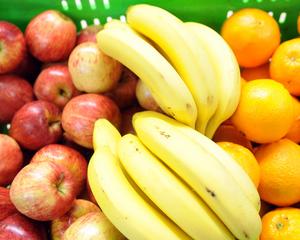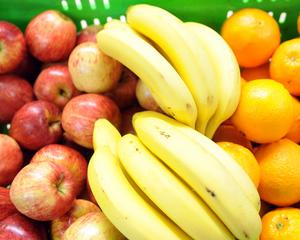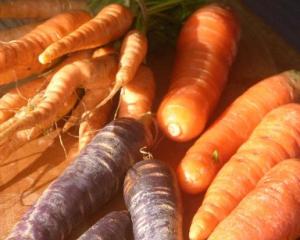A consumer watchdog says there is little doubt New Zealand's supermarket duopoly - in which all major chains are owned by just two companies - is behind grocery prices rising faster in New Zealand than most major industrialised countries.
Consumer New Zealand chief executive Sue Chetwin said all consumers can do is to shop around, because it would be difficult to add competition to the supermarket industry.
Ms Chetwin told Radio New Zealand the nation had a "double whammy" in that much of the food produced here was exported, so shoppers ended up paying export prices.
The Green Party has previously called for Commerce Commission investigation into supermarket pricing practices and has claimed that some supermarkets place huge mark-ups on some produce, such as 195 percent on kumara and 286 percent on pumpkin.
It wanted an investigation into grocery prices and the impact of having two major big players Progressive Enterprises and Foodstuffs who account for 95 percent of the market. "It does confirm that the cosy duopoly does work to keep prices high, and there really isn't as much competition as there should be," said Ms Chetwin.
Foodstuffs managing director Tony Carter, who oversees New World and Pak'n'Save, said the market was " extremely competitive".
"It is what gets me out of bed in the morning - to come and try and compete against Progressive," he told TV3.
According to Consumer Affairs Minister Heather Roy, the only solution is to encourage more businesses into the market. "When there is a healthy market operating and lots of competition, prices for consumers will be lower," she said.
In Australia, Professor Frank Zumbo from the New South Wales University used Organisation for Economic Co-operation and Development (OECD) figures to show New Zealand grocery prices have risen 42.5 percent since 2000 - faster than Australia's 41.3 percent, Britain's 32.9 percent or America's 28.4 percent.
South Korea was the only country worse than New Zealand, at 48.2 percent.
Prof Zumbo blamed a lack of competition in the supermarket sector for Australians paying some of the highest levels of food inflation.
"Here (in Australia) we have two players controlling about 80 percent of the market... so highly concentrated market," he said.
Coles and Woolworths had enormous pricing power and ability to put prices up at will, while in Britain, the top four or five supermarkets control only about 65 to 70 percent of the market.
But the Australian competition watchdog earlier this year rejected criticism that Australia's grocery sector was dominated by two big chains.
Food, beverage and tobacco prices have risen 4 percent a year, on average, since 1993 - comfortably above the 2.7 percent core inflation rate, but Graeme Samuel, chairman of the Australian Competition and Consumer Commission (ACCC), said food prices had been rising faster than general inflation across the OECD.
He said in August that New Zealand's food prices had increased 8.3 with CPI at 1.9 percent






